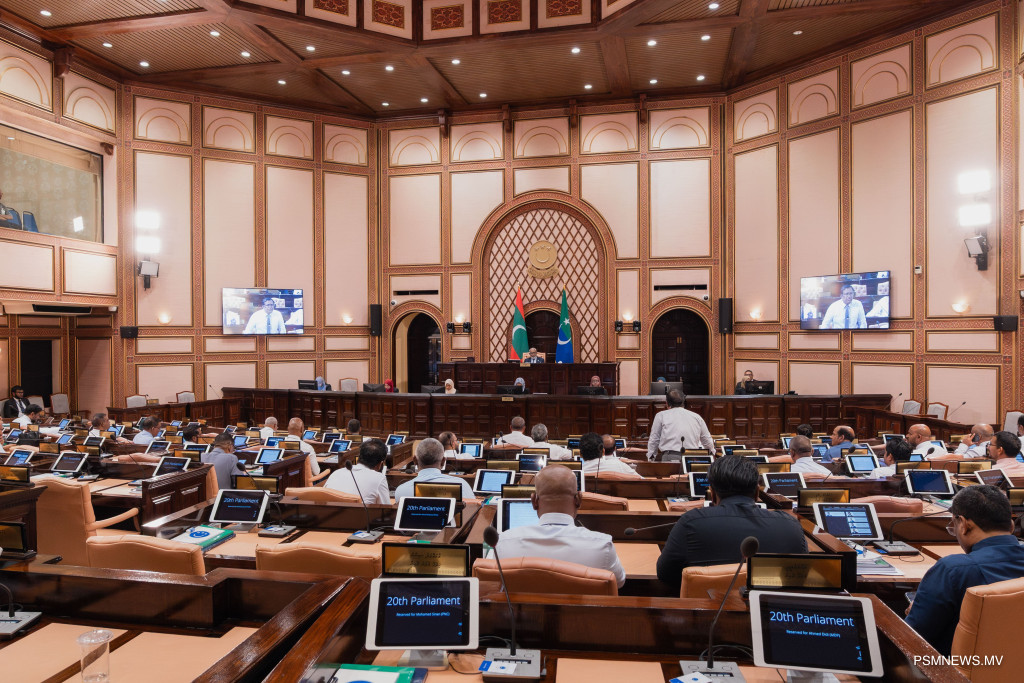Parliament Authorises Maldives’ Accession to UN Cybercrime Treaty, Joining Global Push Against Digital Offences

The Parliament has unanimously authorised the government to join the United Nations Convention against Cybercrime, a landmark treaty that sets global standards for preventing and prosecuting offences in the digital sphere.
The resolution was adopted during Wednesday’s parliamentary session, with all members present voting in favour. The decision grants the government formal consent to proceed with accession, underscoring the country’s commitment to strengthening its role in international efforts against cybercrime.
President Dr Mohamed Muizzu presented the convention to parliament on 14 October for consideration and approval, a necessary step for the Maldives to sign and ratify the treaty. After reviewing the proposal, the Foreign Relations Committee stressed the importance of swift ratification, arguing that early accession would allow the Maldives to influence the principles guiding the treaty and to seek technical assistance in building its capacity to address digital threats.
The convention, formally titled the United Nations Convention against Cybercrime, was adopted by the General Assembly in December 2024. It is the first international criminal justice treaty in more than two decades and establishes common standards for tackling crimes unique to cyberspace, such as hacking and denial‑of‑service attacks, as well as traditional offences committed online, including fraud and trafficking.
Safeguards are also embedded in the treaty, designed to protect human rights and fundamental freedoms. These provisions aim to balance stronger enforcement with the preservation of privacy and free expression, a balance that has become increasingly central to debates on digital governance.
Formal signing procedures are scheduled to take place in Vietnam from 25 to 26 October. Once signed, the Maldives will join other nations in committing to implement the treaty’s provisions, including measures to improve the collection and exchange of electronic evidence essential for prosecuting serious crimes.
According to the Foreign Relations Committee, accession is expected to deliver tangible benefits for the country’s digital landscape. Stronger security protections and enhanced investigative skills are among the anticipated outcomes, positioning the country to better safeguard its digital infrastructure while contributing to the global effort to combat cybercrime.
